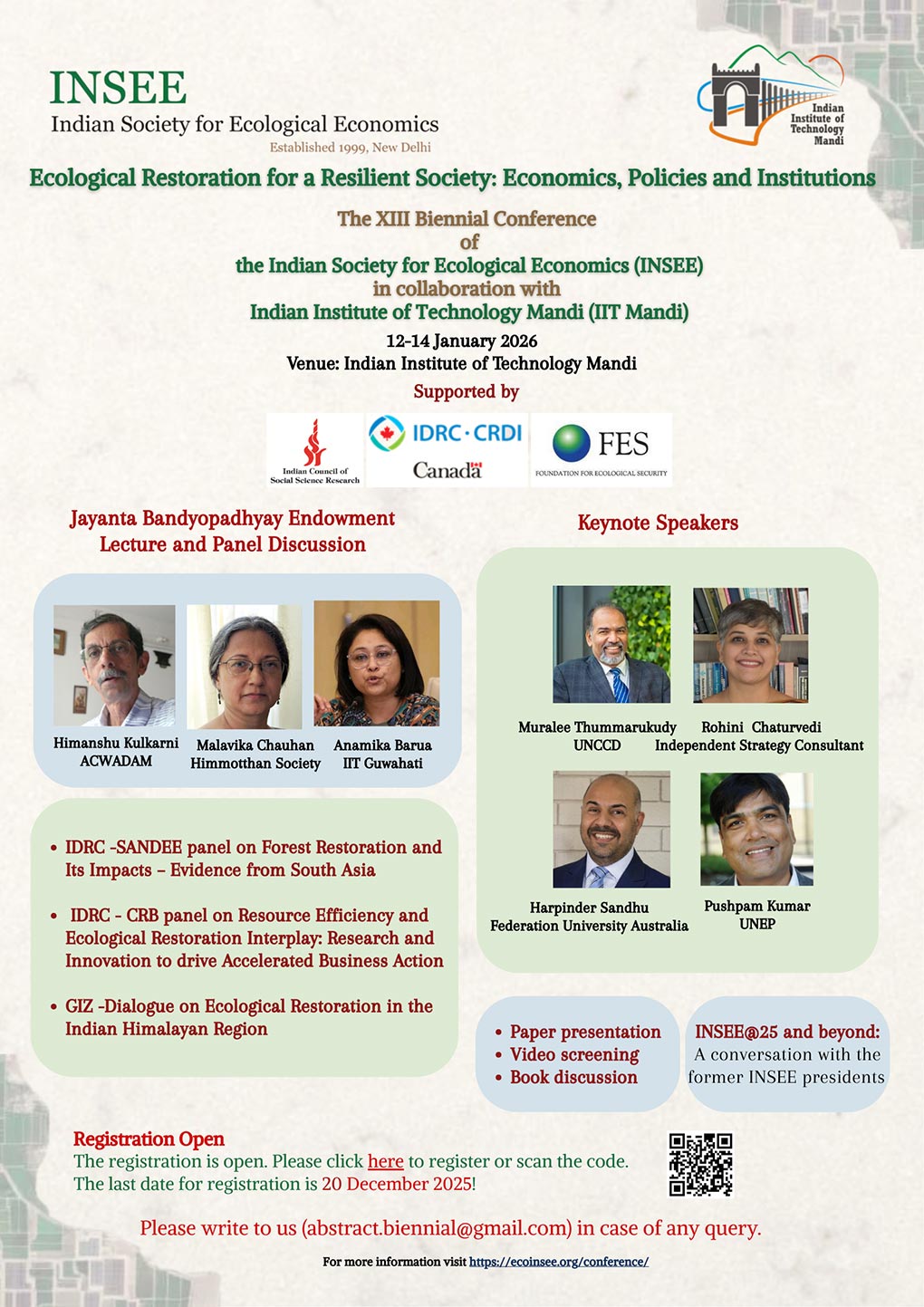The 13th Biennial Conference of the Indian Society for Ecological Economics on "Ecological Restoration for a Resilient Society: Economics, Policies and Institutions" is going to be held during 11-14 January 2026 at the Indian Institute of Technology Mandi, Himachal Pradesh. If you are an academic or practitioner working on ecological restoration, we invite you to submit your abstract.
Ecological restoration is about preventing, halting and reversing the loss of nature. 1.56 billion ha of the world’s land is already degraded, and degradation is increasing at 4% every four years (UNCCD data dashboard 2023). This has proven implications for poverty reduction efforts, biodiversity and water availability. Restoring degraded ecosystems to their functional and productive state while ensuring equitable and sustainable access to the resource-poor has become inevitable for a progressive and development-oriented society. United Nation’s Sustainable Development Goal 15 (Life on land) emphasises the social need to restore degraded ecosystems, with target 15.3 further envisaging a “Land Degradation Neutral” world by 2030. To accomplish this target, UNCCD declared 2021-2030 as the decade of Ecosystem Restoration.
India, the seventh largest country in the world with 3.28 million sq. km of geographical area, has only 2.4% of the world’s land to support nearly one-fifth of the world’s population and 12% of the world’s livestock. With 97.84 million hectares of its scarce land resources under different stages of degradation, about 251.71 million Indians or 18.39 per cent of the country’s population, are exposed to land degradation in 2019 (The UNCCD data dashboard 2023), and this proportion is increasing over time. Its deteriorating ecological health is challenging India’s development aspirations and its prospects of equitable and sustainable development. Estimates show that the economic benefits of restoration range from 7 to 30 times the investment, and the cost of inaction to restore land is estimated to be significant in different biogeographic regions across India.
However, there are unanswered questions about restoration that must be tackled before specifying targets and committing significant resources. We need scholarly work to answer the open questions on the social, economic and ecological trade-offs entailed in restoration across economic classes, social categories, gender and ecological dimensions; as also across different sectors of the economy, and in a rural-urban gradient. As a sunrise investment sector, restoration’s political economy and ecological justice also need to be made explicit. The XIII Biennial Conference of INSEE hopes to bring together scholars nationwide to deliberate these open questions and contribute towards equitable and sustainable land restoration efforts in the country.
We invite submissions that make focused conceptual and methodological contributions of a theoretical or empirical nature, as well as those contributing to the practice dimension of restoration. Research and praxis on the topics listed below could be on restoration of Land (Forest, Agriculture, Village commons, Mountains, etc.), Waterbodies (Oceans, Rivers, Ground water, etc.) or Urban landscapes (Wetlands, Parks & Plantations, Farming, Waste management, etc). Specific studies undertaken in any of these landscapes could cover any of the following topics.
While research outputs will be presented in sessions of oral presentations, scholarship from practicing restoration on any of the above topics should be presented as photo essays or short videos. There will be dedicated posters and/or audiovisual sessions for these.
